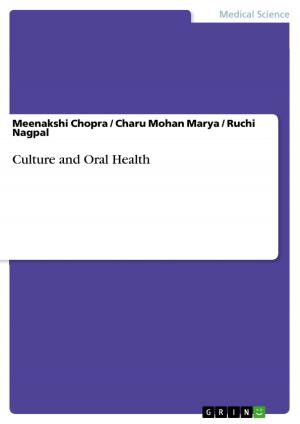The Criticism of Richardson's novel 'Pamela' by Henry Fieldings' 'Shamela'
Fiction & Literature, Literary Theory & Criticism, British| Author: | Alisa Westermann | ISBN: | 9783640935130 |
| Publisher: | GRIN Publishing | Publication: | June 9, 2011 |
| Imprint: | GRIN Publishing | Language: | English |
| Author: | Alisa Westermann |
| ISBN: | 9783640935130 |
| Publisher: | GRIN Publishing |
| Publication: | June 9, 2011 |
| Imprint: | GRIN Publishing |
| Language: | English |
Seminar paper from the year 2008 in the subject English Language and Literature Studies - Literature, grade: 2,3, University of Münster (Englisches Seminar), course: Samuel Richardson, language: English, abstract: By its publication, the novel 'Pamela' became one of the most popular contemporary books of that time. One of the reasons for the enormous success of 'Pamela' might have been that more and more women got interested in literature, especially in romantic novels or religious works. All in all, the era was dominated by a commercialization of literature, the rise of the realism and of the moralistic-didactic intentions, which implicated a change of the recipients of literature. Moreover, it entailed a decline of the aristocratic ideals and a rise of the lower middle class and its moral concepts . Also characteristic for that era, as already mentioned, are the so-called 'conduct books', that aimed to educate the reader in the comportment in social life. Richardson, who was part of the lower middle class, with his novel 'Pamela' is completely in step with the social spirit of that time. The topic of a young girl who is anxious of keeping her virtue is not new, but Richardson added this attribute to a servant girl, which is, even for that time, quite exceptional. 'Servant girls (...) constituted a fairly important part of the reading public, and they found it particularly difficult to marry. (...) Richardson's heroine symbolised the aspirations of all the women in the reading public who were subject to the difficulty of getting married.' Fielding, as a part of the aristocracy, criticized and satirized the over-morality that was presented in Richardson's novel and, furthermore, mocks Richardson's style in various way. Yet, all in all Fielding considers Richardsons moralistic and chaste point of view as an ambigious and even dissembling furtiveness.
Seminar paper from the year 2008 in the subject English Language and Literature Studies - Literature, grade: 2,3, University of Münster (Englisches Seminar), course: Samuel Richardson, language: English, abstract: By its publication, the novel 'Pamela' became one of the most popular contemporary books of that time. One of the reasons for the enormous success of 'Pamela' might have been that more and more women got interested in literature, especially in romantic novels or religious works. All in all, the era was dominated by a commercialization of literature, the rise of the realism and of the moralistic-didactic intentions, which implicated a change of the recipients of literature. Moreover, it entailed a decline of the aristocratic ideals and a rise of the lower middle class and its moral concepts . Also characteristic for that era, as already mentioned, are the so-called 'conduct books', that aimed to educate the reader in the comportment in social life. Richardson, who was part of the lower middle class, with his novel 'Pamela' is completely in step with the social spirit of that time. The topic of a young girl who is anxious of keeping her virtue is not new, but Richardson added this attribute to a servant girl, which is, even for that time, quite exceptional. 'Servant girls (...) constituted a fairly important part of the reading public, and they found it particularly difficult to marry. (...) Richardson's heroine symbolised the aspirations of all the women in the reading public who were subject to the difficulty of getting married.' Fielding, as a part of the aristocracy, criticized and satirized the over-morality that was presented in Richardson's novel and, furthermore, mocks Richardson's style in various way. Yet, all in all Fielding considers Richardsons moralistic and chaste point of view as an ambigious and even dissembling furtiveness.















